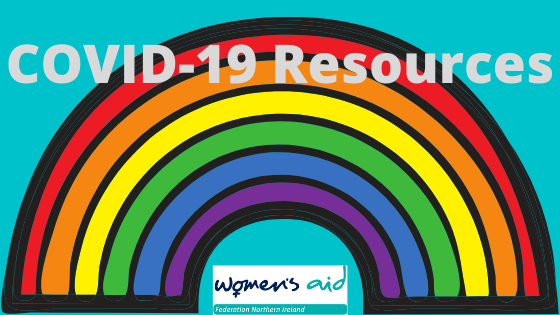But Women’s Aid know that, for women and children in lockdown with abusive partners, it is an especially dangerous time. We have put together a collection of resources for women, children and young people who are experiencing domestic abuse during lockdown.
Click the link below for information on domestic abuse affects children and young people and how you can best support them.
HOW ARE CHILDREN AND YOUNG PEOPLE AFFECTED BY DOMESTIC ABUSE?
Resources for Survivors
During lockdown we are being told to stay at home in order to keep safe. For women who are isolating with abusive partners, staying home is not safe for them. The government have stated publically that leaving the house to escape domestic abuse is a legitimate and legal act.
Women who are still isolating with abusive partners are experiecing more isolation than usual under lockdown as they have less access to support networks such as family and friends, and less contact with neighbours. We would suggest that these women look at our resources around safety planning by clicking the link below.
It’s important to take steps to help you feel as safe as possible. Women’s Aid recognises that you are the expert of your own situation and know best how to keep yourself safe, these are suggestions on ways to go about doing that. Only use the information that feels safest to you.
- Try to keep your phone charged and with you at all times
- Programme your phone with useful contact numbers that you can access in an emergency
- Have a codeword with your children/family and tell them what to do/where to go when they hear you say it
- Have an escape plan, how would you leave your house in an emergency, could you go to a trusted neighbour or a local shop?
- If your partner becomes violent, try to get to a low risk area of the house, somewhere with an exit point – avoid high risk areas such as the kitchen
- Keep important documents such as passports and banking details together so you can be prepared to leave the house in an emergency
You can find more information on safety planning here.
If you are in danger you can always contact the PSNI on 999. If you need the police and are in a situation where you cannot speak you can phone 999 and then dial 55 and the police will be alerted.
Women’s Aid is still open and providing services across the whole of Northern Ireland, with our nine local groups providing emergency accomodation and ourreach support services. We have to work differently because of Covid-19, but we are still working for women and children experiencing abuse. If you need support and information around domestic abuse you can contact your local Women’s Aid group Monday to Friday, 9am to 5pm. All contact details for our local groups can be found here.
Resources for Children
Children’s lives have been seriously impacted by COVID-19 and yet it can be so difficult to explain to them why. The Northern Ireland Commissioner for Children and Young People has put together resources on how to talk about Coronavirus for parents and children. These resources can be accessed using the link below.
NICCY – Talking to Children about Covid-19
The Royal College of Paediatrics and Child Health put together a range of fun activities that parents can do with their children to stay healthy during lockdown. These can be accessed here.
During the lockdown, many people have coloured in rainbows and stuck them up in their windows to support the NHS and other key workers at this time. Below is a link to a rainbow that you can print out and colour in yourself.
As part of our Helping Hands programme, Women’s Aid encourages children to think about how their feelings and emotions can affect their bodies, so that they can recognise these feelings and not be frightened of them. Click the link below to download and print out a gingerbread person outline. You can use it to talk to your child about how their emotions might have an impact on their bodies.
You access examples of other children’s work as well as other ideas for activites around talking to your children about their feelings using the PDF below.
Guide Dogs have put together a range of activities for blind or partially-sighted children during Covid. They can be accessed at the link below.
Guide Dog’s resources for children and young people
For children and young people with autism, this can be an especially unsettling time. For information and resources on how to talk to your child about lockdown and social distancing, as well as ideas for activities click here.
Resources for Young People
For young people and teenagers, dealing with the separation from their friends that comes with lockdown can be especially tricky. Barnardos have a published a blog post detailing why your teen might be struggling with lockdown and how to help them through it. Follow the link below to read the article.
Bardardos Blog on Teens During Lockdown
Being a teenager is difficult under the best circumstances, but lockdown is presenting even greater challenges that can impact on their mental health. Mind has put together some resources on how to talk to your teenager about Coronavirus and support them with their mental wellbeing as much as possible.
Supporting Your Teen’s Wellbeing Through Coronavirus
YouTube Learning has lots of videos on school subjects that could help support young people with school in the absence of their teachers.
